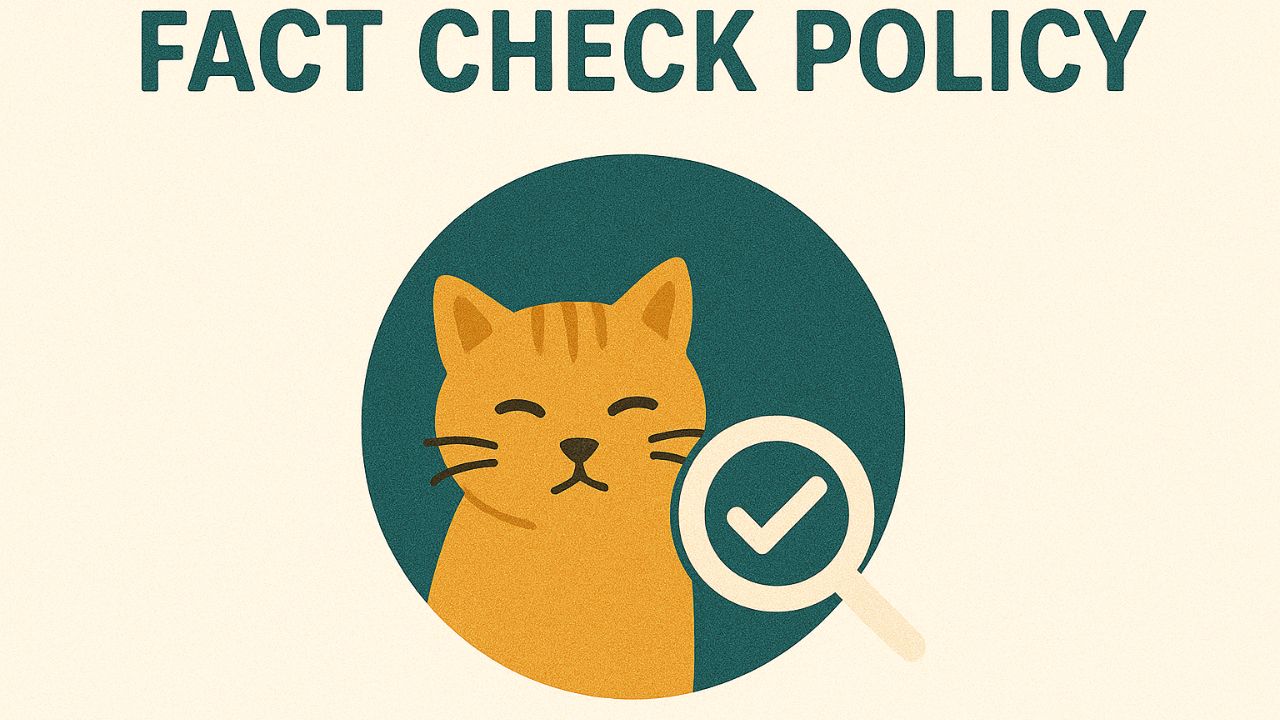Fact Checking Policy

At ProjectCat.org, we believe that credible conservation starts with verified facts. Our mission to protect wild cats and their ecosystems depends on the trust and accuracy of the information we provide to the public, donors, educators, and global conservation partners.
This Fact-Checking Policy outlines how we validate, update, and ensure the reliability of our published content.
- Commitment to Scientific Accuracy All information published on ProjectCat.org is reviewed for factual integrity. Our editorial team works to ensure that each article, report, infographic, or educational resource is:
Scientifically accurate
Ethically sourced
Based on the most current research or field data available
We do not publish speculative, unverified, or sensational content that may mislead readers about wildlife behavior, conservation status, or threats.
- Source Criteria We rely on high-quality, authoritative sources, including:
Peer-reviewed scientific journals (e.g., Journal of Wildlife Management, Biological Conservation)
Official global databases (e.g., IUCN Red List, CITES Appendices)
Research papers and reports from trusted conservation organizations (e.g., Panthera, WWF, WCS)
Field observations and updates from our partner biologists, trackers, or wildlife reserves
Government environmental agencies and park authorities
When possible, we cite original sources and provide outbound links for full transparency.
- Content Review Process Every article or resource published on ProjectCat.org undergoes a multi-step verification process:
Initial research & draft validation by the content author
Cross-checking of key facts (e.g., species status, population numbers, geographic data) by editors
Subject matter review, when needed, by field experts or conservation biologists
Final approval before publishing
For guest contributions or third-party submissions, the editorial team verifies claims and requests citations if necessary before publication.
- Live Updates & Revisions Wildlife data evolves. Species may be reclassified, protected areas may change, and threats may escalate. To reflect this:
We routinely audit high-traffic or time-sensitive content
Articles are marked with “Last Updated” dates when revised
Old or incorrect content may be archived or redirected to updated versions
We prioritize accuracy over quantity and do not hesitate to correct, retract, or rewrite content as needed.
- Handling Errors and Feedback Despite our rigorous process, we welcome the community’s help in identifying errors or suggesting updates. If you believe an article contains outdated or incorrect information:
📩 Please report it via our Contact page: ProjectCat.org/contact
We will review and respond within 7 business days. Verified corrections will be published clearly and transparently.
Use of AI and Automation If automated tools (such as AI writing assistants) are ever used to support content drafting, all outputs are human-reviewed, fact-checked, and edited by our editorial team before being published. No automatically generated content is published without oversight.
Educational vs. Scientific Disclosure While we strive for scientific accuracy, ProjectCat.org is an educational and advocacy platform, not a peer-reviewed scientific journal. All medical, ecological, or conservation-related information should be used for learning purposes only and not as a substitute for expert consultation.
